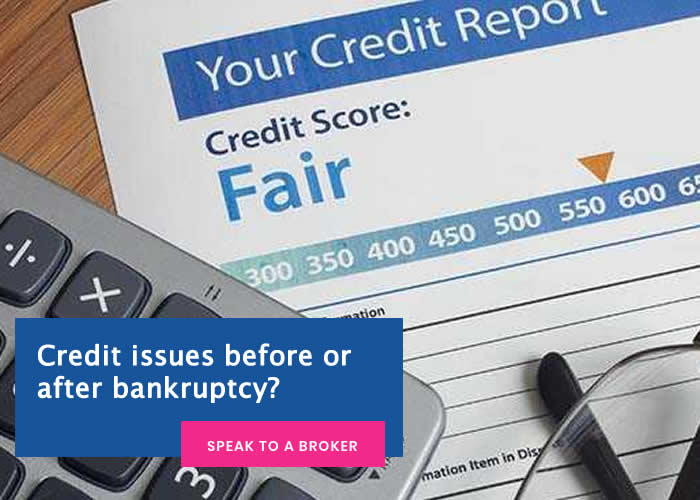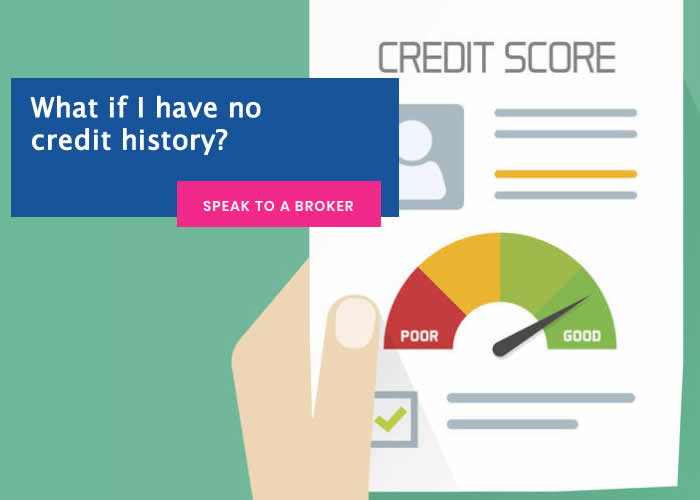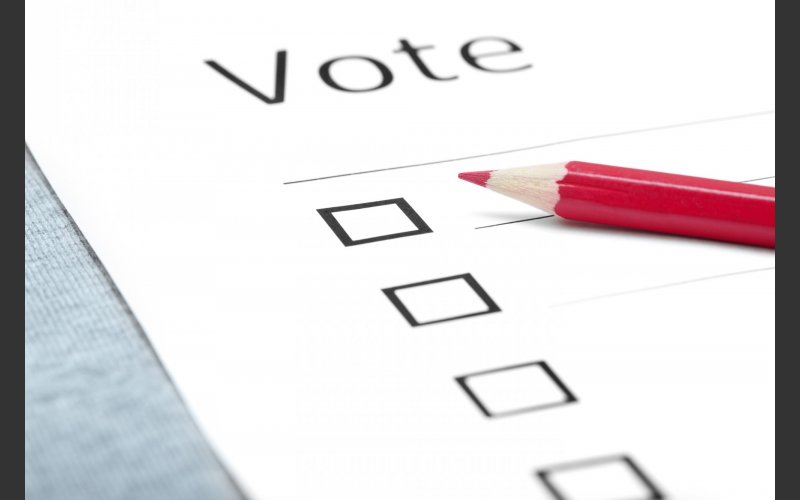If you’ve been declared bankrupt in the past, this doesn’t have to mean the end of your dreams of owning a home. Many people assume that bankruptcy means that you’ll never be approved for a mortgage, and while it might be more difficult, it isn’t impossible. We regularly hear from customers who have been declined from their first mortgage application and are quick to assume that the search ends there. However, we’re pleased to say that it isn’t an uncommon situation to be in and there are ways to find a mortgage after bankruptcy.
This type of mortgage might be trickier to set up and you might have to jump through more hoops than the average mortgage applicant. However, it can be done. Once you have satisfied a lender that you aren’t high risk, you will be treated like any other lender. And once you have a mortgage, this can help you to secure other types of credit and start building up your credit report even further. So, if you’re dreaming of owning your own home or want to invest in a buy-to-let property following bankruptcy, don’t give up yet.
What is bankruptcy?
If you are struggling to pay back your debts you can apply for bankruptcy. If you owe over £5,000, your creditors can also apply to make you bankrupt, even if you don’t want them to. Bankruptcy is a legal status that allows you to make a fresh start after 6 years. However, it isn’t something that should be taken lightly. If you declare yourself bankrupt, you may have to continue paying your debts for up to 3 years. You can also have your property seized in order to pay back your debts. If you have been made bankrupt, some occupations won’t allow you to work again, and in many cases, it can be more difficult to secure credit.
As with any type of poor credit, bankruptcy can make you feel like you are on a blacklist of borrowers. The good news is that more and more lenders are committing to help those with poor credit get back on their feet, even those who have been declared bankrupt. If you’re trying to get a mortgage following bankruptcy, this article should help to clear up some of the common misconceptions surrounding mortgages for discharged bankrupts, including:
- Mortgages for discharged bankrupts from 1-6 years ago
- Securing a mortgage with a history of repossession
- Securing a mortgage with bankruptcy and a small deposit of 10-15%
- Securing a mortgage with a 5% deposit
- Mortgages for discharged bankrupts with a large deposit
- But to let mortgage for discharged bankrupts
- Remortgaging following a discharged bankruptcy
- Bankruptcy annulment and mortgages

How long do I need to wait after bankruptcy before I can get a mortgage in the UK?
Many people assume that they won’t be eligible for a mortgage after being declared bankrupt, but this is rarely true. While you will have to wait until you are discharged before applying, this can be as little as 12 months and even less depending on the court’s ruling. Once you have been discharged, you will then have to focus on rebuilding your credit and ensuring that you look trustworthy in the eyes of lenders again. During this time, you might assume that not taking on any more credit is a wise mood, but this might actually be counterproductive. In reality, you need to show lenders that you are capable of making payments regularly and on time.
In terms of a mortgage application, the amount of time you wait between your discharged bankruptcy and applying will have a huge impact on your eligibility and the amount of deposit required to move forward.
The longer you wait, the lower the deposit you will need and the fewer restrictions that will apply to your application. If you have a good financial contact for 4-5 years following bankruptcy, you might find that you are able to borrow 90-95% of the value of a property just like any other borrower. Even those who have only been discharged for 12 months may find they are eligible for a mortgage with a 25% deposit.
The table below shows typical eligibility for discharged bankrupts seeking a mortgage. As you can see, the longer you leave it before applying, the more likely you are to be able to secure a mortgage with a smaller deposit.
| Can I get a mortgage if…? |
Declared bankrupt |
Bankruptcy discharged |
Eligibility |
Deposit required |
| I’m just bankrupt |
0 years ago |
0 |
No |
N/A |
| Bankrupt 1 year ago |
1 year |
0 |
Low |
At least 40% |
| Bankrupt 2 years ago |
2 years ago |
1 |
Low |
At least 25% |
| Bankrupt 3 years ago |
3 years ago |
2 |
Low |
At least 25% |
| Bankrupt 4 years ago |
4 years ago |
3 |
Med |
At least 15% |
| Bankrupt 5 years ago |
5 years ago |
4 |
High |
At least 10% |
| Bankrupt 6 years ago |
6 years ago |
5 |
High |
At least 5% |
| Bankrupt more than 6 years ago |
6+ years ago |
6+ |
High |
At least 5% |
Please note that this information can change regularly so you should always consult with a mortgage advisor before making any financial decisions related to mortgages. During times of political uncertainty, lenders might be less willing to lend and those who are considered high risk are often the first to be rejected.
The table above doesn’t guarantee that you will be given a mortgage if you were made bankrupt 6 years ago and have a 5% deposit. Many other factors go into the decision-making process and the time that has elapsed since your bankruptcy is only one of them. If you have a poor credit file, for example, and have done little to rebuild your credit, you might find it more difficult to get a mortgage. However, if you have been responsibly working towards building your credit, you may find you can get a mortgage much sooner.
Here is an infographic we put together to break all stages down in a visual way.

How do I give myself the best chance of having my mortgage approved after bankruptcy?
Bankruptcy doesn’t have to mean the end of the road for your chances of owning your own home or even purchasing a buy-to-let property. If you’re serious about getting your finances back on track, there are steps you can take to start building your credit again. Once your bankruptcy is discharged, you will find it more difficult to get credit, so you should essentially start from the beginning. Follow these steps to building your credit following bankruptcy…
1. Check ALL credit reports and make corrections
There are three main credit reference agencies in the UK and they all have a different system for generating your credit score. Before you can decide if you’re ready to take out a mortgage, it’s important to get a complete picture of how each of these credit checking agencies views your profile.
It’s impossible to know which credit checking agency your mortgage provider is using, and some will use an amalgamation of all three in order to generate a more complete picture. If you don’t have access to the same information, it’s difficult for you to know when you are ready to make your application.
It’s also very common for mistakes to appear on your file following bankruptcy. You might also see some closed accounts still showing late balances, or defaults still cropping up on your file. If you see a mistake on your credit report, you can query this with the company and request that it be updated. It’s not uncommon for individuals to be declined credit because of mistakes on their credit report, but they will assume that it is because of their bankruptcy.
2. Check if you are eligible for a mortgage
Once your credit report is up-to-date, you can then inquire with a mortgage expert to find out if they believe you would be eligible to apply. They are used to working with people from all different financial backgrounds, so don’t assume that they won’t work with you because of your bankruptcy.
3. Rebuild your score until you are eligible
If your advisor recommends that you wait a while before applying for your mortgage, use this time to rebuild your credit score further. A simple way to do this is by making sure you meet your monthly payments on a credit card or overdraft. If you are struggling to get credit because of your history with bankruptcy, you can apply for a credit card specifically for people with poor credit. Use this for small transactions throughout the month and pay it off in full at the end of the month.

What if I have credit issues before or after bankruptcy?
Any credit issues from before your bankruptcy should be wiped out and not pose any further problems. So, if you had late payments, mortgage arrears or CCJs, this should be removed from your credit report once you have been discharged. This usually takes place one year after you have declared bankruptcy.
However, if your credit issues continue after your bankruptcy, this is likely to be seen an unfavourable to lenders. Mortgage providers will already see you as a high-risk customer, and if you have failed to bring your financial situation into line by continuing to make late payments then this might lead to your application being declined.
This is another reason that it is important to keep an eye on your own credit report. Mistakes left on your report could appear to lenders as new credit issues when in reality they should have been expunged from your record following the bankruptcy.
Time heals most things on a credit report, so if you faced issues immediately after your discharge but have improved your credit over a period of 6+ years, these are unlikely to have an impact on your record.

Where can I get a mortgage after bankruptcy?
There are currently around 20 mortgage providers who will accept applications from discharged bankrupts. They all have their own rules and regulations for who can apply and how long they need to wait after being discharged before applying. As outlined above, there are no guarantees when it comes to applying for a mortgage following bankruptcy.
Mortgage providers will consider many different factors when making a lending decision. The best way to find the right mortgage provider for you is to speak to an experienced mortgage advisor with knowledge of mortgage for discharged bankrupts.

Can I get a buy-to-let mortgage after bankruptcy?
Buy-to-let mortgages are some of the hardest to come by, but it is possible to secure a buy-to-let mortgage following bankruptcy. You will need to meet much stricter criteria, usually the following:
- Be discharged for at least 3 years.
- Have a clean credit score since your discharge
- Secure at least a 15% deposit, sometimes even more
- Own at least one other property
- Have some personal income. There is no minimum income threshold, but you will need to have some income either from employment, self-employment or retirement
Can I use the equity in my home to remove bankruptcy debt?
This is a seldom used route but highly effective in removing bankruptcy from your file. If you are able to pay off the bankruptcy debt within a timeframe set out by the courts, you could secure something known as an annulment. This effectively wipes your credit score clean without resorting to bankruptcy and the discharge period.
Your eligibility for an annulment will depend on how you accrued your debts. For example, if you were forced into bankruptcy by HMRC for failing to pay a tax bill, you could use a secured loan against your home to clear any debts and halt the bankruptcy. This would leave your credit report unscathed and allow you to remortgage your home further down the line.
If you are forced into bankruptcy because of multiple debts, securing a loan to clear off your debts is going to be difficult. However, with a specialist second charge mortgage, you could avoid the bankruptcy process.
Conclusions
As outlined above, there are many options for those dealing with a bankruptcy who want to get on the property ladder. You could use a secured loan against your home to halt the bankruptcy proceedings. Or you can bide your time following bankruptcy and spend the time building your credit report.
Bankruptcy doesn’t have to mean that you can never get a mortgage again. Instead, it simply means that you will need to be wise to the companies that work with discharged bankrupts. A declined application doesn’t have to mean that you cannot get a mortgage, you might simply need to work on building your credit and allow more time to pass.
If you’re not sure how to proceed with your mortgage application, speak to a specialist mortgage advisor. They will be able to look at your situation and decide if you are ready to make an application or tell you what steps you need to make to get your credit report in line. Approaching the right mortgage provider to secure your agreement in principle can give you the confidence to start your search for the right property.
It might be more difficult to secure a mortgage for discharged bankrupts, but it isn’t impossible, so don’t give up!










